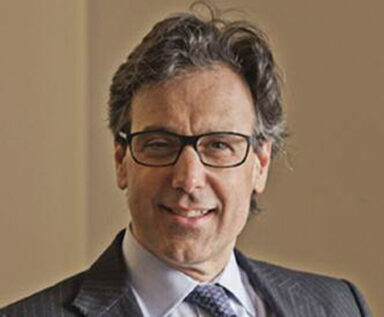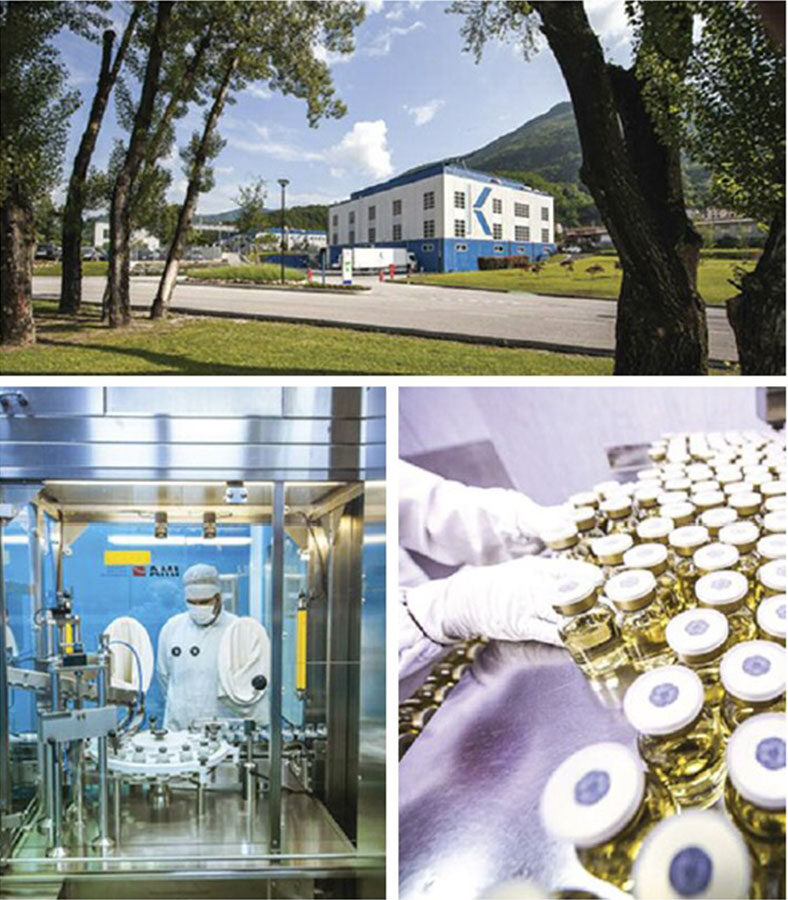A Vision for Global Leadership – Paolo Marcucci
- By Trudie Mitschang
“Our corporate culture is built upon promoting the social value of plasma processing for the treatment of chronic disease, and ultimately improving the quality of people’s lives.”
— Paolo Marcucci, President and CEO, Kedrion
 AS A LEADING global biopharmaceutical company specializing in the development, production and distribution of plasma-derived products, Kedrion is a name that is well-respected throughout Europe and beyond. Headquartered in Italy, Kedrion has an established presence in Europe, Mexico and the United States, with a workforce boasting more than 1,400 employees. The company’s core offerings include immune globulins (standard and hyperimmune), coagulation factors (factor VIII, factor IX), coagulation inhibitor (antithrombin III) and albumin — all of which are distributed in 60 countries around the world.
AS A LEADING global biopharmaceutical company specializing in the development, production and distribution of plasma-derived products, Kedrion is a name that is well-respected throughout Europe and beyond. Headquartered in Italy, Kedrion has an established presence in Europe, Mexico and the United States, with a workforce boasting more than 1,400 employees. The company’s core offerings include immune globulins (standard and hyperimmune), coagulation factors (factor VIII, factor IX), coagulation inhibitor (antithrombin III) and albumin — all of which are distributed in 60 countries around the world.
At the helm of this rapidly expanding organization is President and CEO Paolo Marcucci. Marcucci has held key positions within Kedrion for the past decade, including serving as CEO of Kedrion Biopharma, a subsidiary of Kedrion Group operating in the U.S. market. A visionary leader, Marcucci’s focus has been on defining the best practices that will support Kedrion’s expansion in global markets, and the consolidation of the company’s presence within North America. “Our goal is to continually strengthen our worldwide role as a strategic partner of the national health systems, especially for countries that would like to become more cost effective, and to make products available to meet the needs of countries belonging to emerging markets,” Marcucci says. “Our corporate culture is built upon promoting the social value of plasma processing for the treatment of chronic diseases, and ultimately improving the quality of people’s lives.”
Promoting Supply Chain Safety
Kedrion has developed a plasma processing model that is both efficient and diversified; the company currently owns nine fully operational collection centers in the U.S., three in Germany (Bavaria) and another three in Hungary. Marcucci notes that Kedrion’s state-of-the-art production facilities are certified according to Good Manufacturing Practices and are based on U.S. Food and Drug Administration (FDA) requirements. “At Kedrion, we put safety and quality as the starting points of everything we do,” Marcucci says. “Our highly detailed internal processes guarantee the quality, effectiveness and purity of our products from start to finish.”
In an effort to maximize safety for the patients on the receiving end of its plasma products, Kedrion utilizes a detailed checklist dubbed the Kedrion Quality Program (KQP). The eight-step safety protocol ensures the ongoing monitoring of every phase of the manufacturing process, including in-depth testing of each plasma donation, inventory hold and look-back procedures, and validated viral removal and inactivation steps. In addition, Kedrion’s plants are regularly inspected by regional health authorities to check and certify that they comply with industry regulations and standards.
Pursuing Innovation and Social Responsibility
Long recognized for its leadership in the area of innovation, Kedrion was honored in recent years when its production plant in Sant’Antimo was toured by Luigi Nicolais, Italy’s Minister of Reform and Innovation in the Public Administration. During the visit, Marcucci met with Nicolais to outline the company’s growth strategy, particularly Kedrion’s ongoing efforts to improve its manufacturing process and the organization’s investments in infrastructure and staff at the manufacturing site, currently recognized as a national center of excellence. “For those who work in a field where industry meets science, the presence of Hon. Nicolais, one of the most respected Italian researchers in the world, was extremely rewarding,” Marcucci notes.
A commitment to social responsibility is one of Kedrion’s core values, and under Marcucci’s leadership, the company has implemented an organizational structure that includes an ethical committee, an ethical officer and code of conduct safeguards to ensure its values are practiced throughout the organization.
An active supporter of patients and patient advocacy organizations, Kedrion recently donated more than one million units of coagulation factor to the Save One Life organization, which used the medicines to treat patients in Pakistan. In late 2012, Kedrion also helped fund the creation of the first Jeffrey Modell Paediatric Immunology Centre in Italy. In addition to its three-year funding commitment, Kedrion will support the project through research and product development. “With the birth of Italy’s first JMF Paediatric Immunology Centre, Kedrion shows its commitment and support to young patients suffering from immune deficiencies and our dedication to scientific research and education in this field,” Marcucci explains. “We believe in investing in people, innovation and research to support the medical and scientific communities and patient organizations, with the ultimate goal of making plasma products more widely available.”

Promise in the Pipeline
As he looks to the future, Marcucci is excited about Kedrion’s support of a number of orphan drug research and development projects in partnership with several public and private sector organizations. The plasma proteins being researched include plasminogen for the treatment of ligneous conjunctivitis, factor II for the treatment of prothrombin deficiencies, factor V for the treatment of factor V deficiencies (parahaemophilia), and factor H for the treatment of hemolytic uremic syndrome (HUS) and type II membranoproliferative glomerulonephritis.
“It is rewarding to know that our daily efforts have a positive effect on the quality of life for individuals living with life-altering disease,” Marcucci says. “Our investment. in research and development supports our belief in what we refer to as the ‘Universal Declaration of Human Rights,’ which is the right of every human being to live in the best possible conditions. By collecting, converting and making usable the vital energy generated and carried through blood, we can support this fundamental right.”